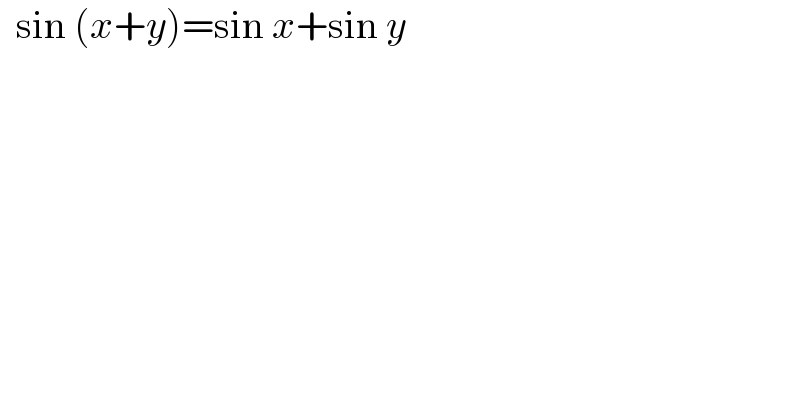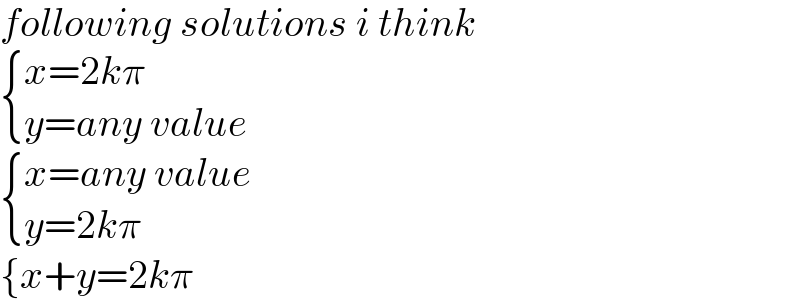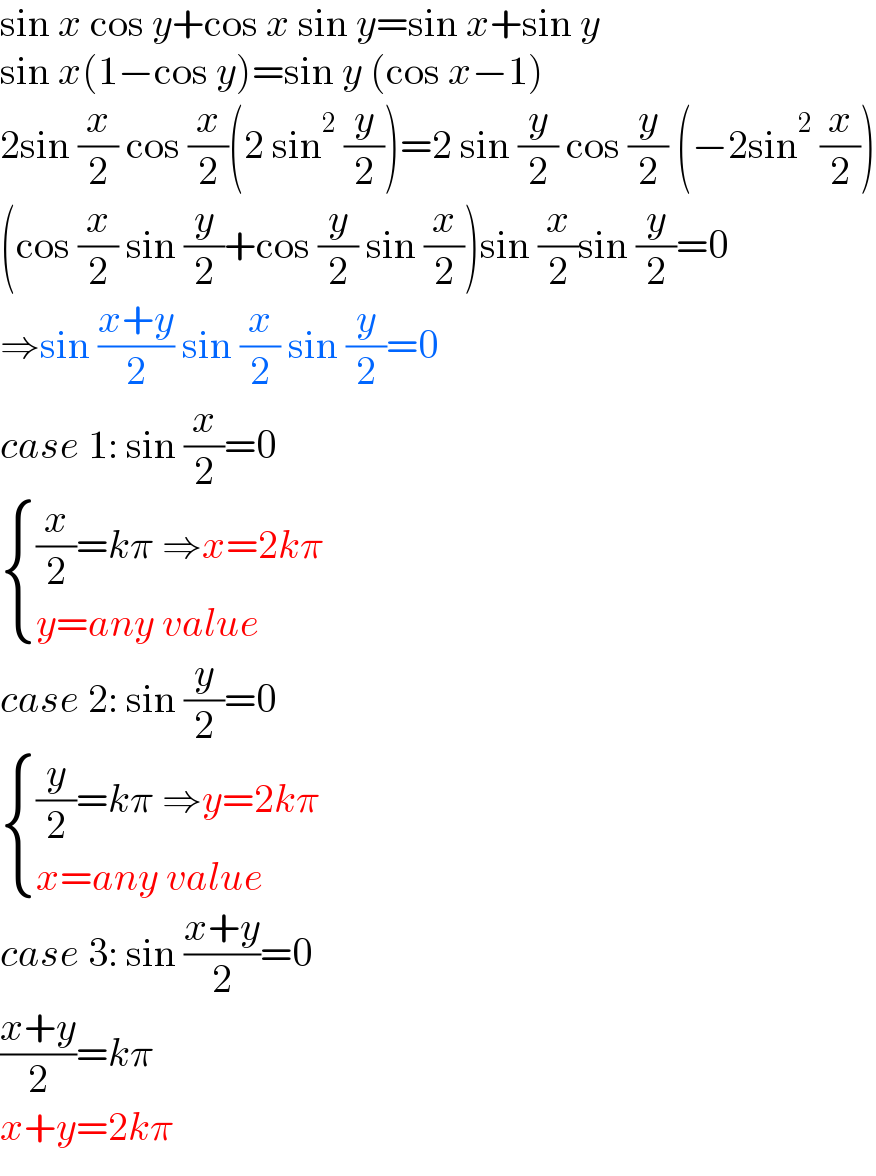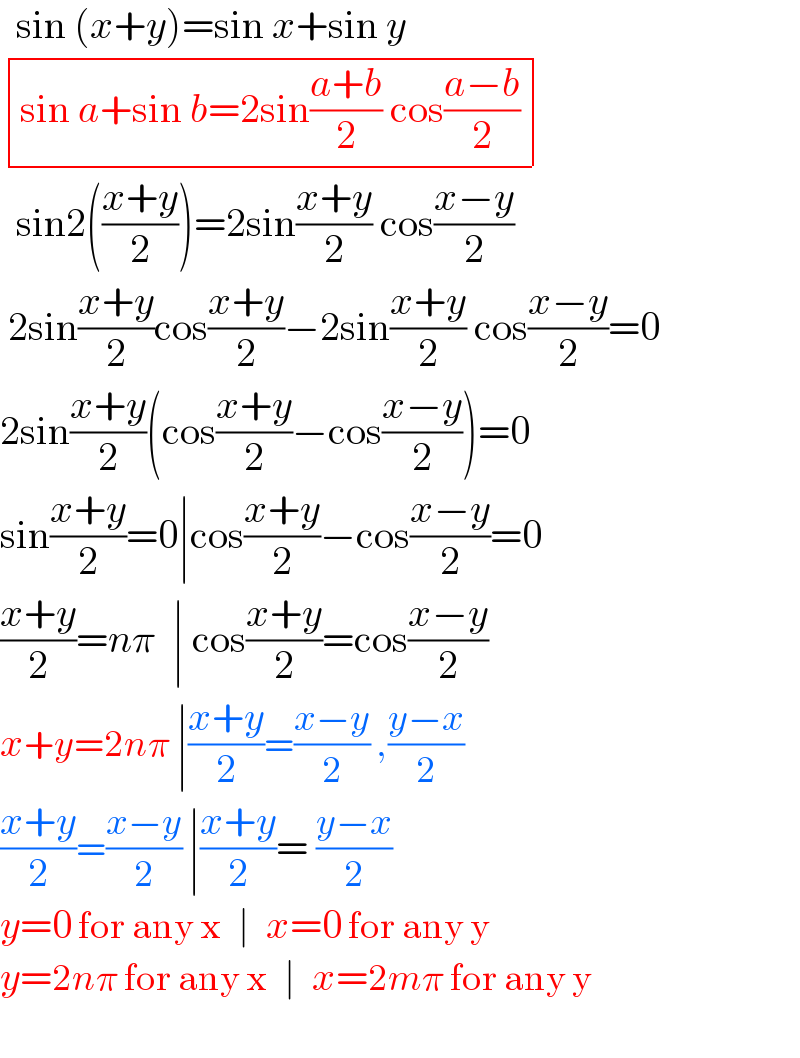
Question and Answers Forum
Question Number 161698 by cortano last updated on 21/Dec/21

Commented by Rasheed.Sindhi last updated on 21/Dec/21

Commented by cortano last updated on 21/Dec/21

Commented by Rasheed.Sindhi last updated on 21/Dec/21

Commented by mr W last updated on 21/Dec/21

Commented by mr W last updated on 21/Dec/21

Commented by Rasheed.Sindhi last updated on 21/Dec/21

Answered by mr W last updated on 21/Dec/21

Answered by Rasheed.Sindhi last updated on 22/Dec/21

